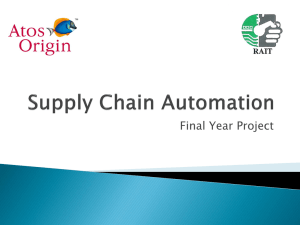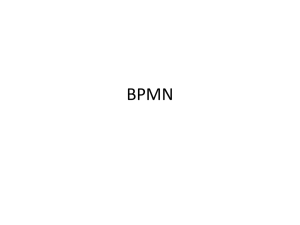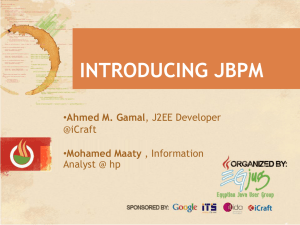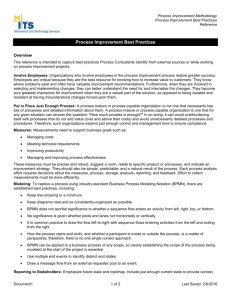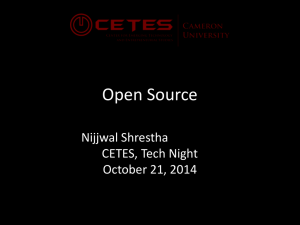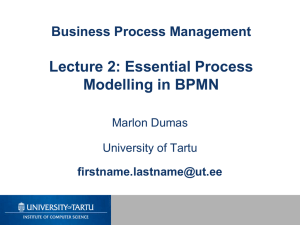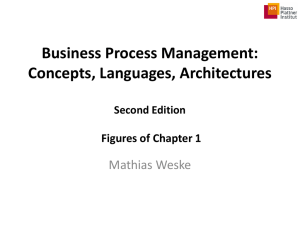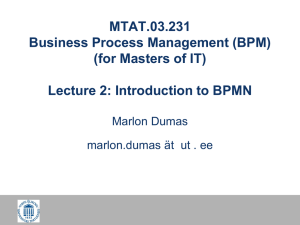Best Practices: Professional business process design for jBPM
advertisement
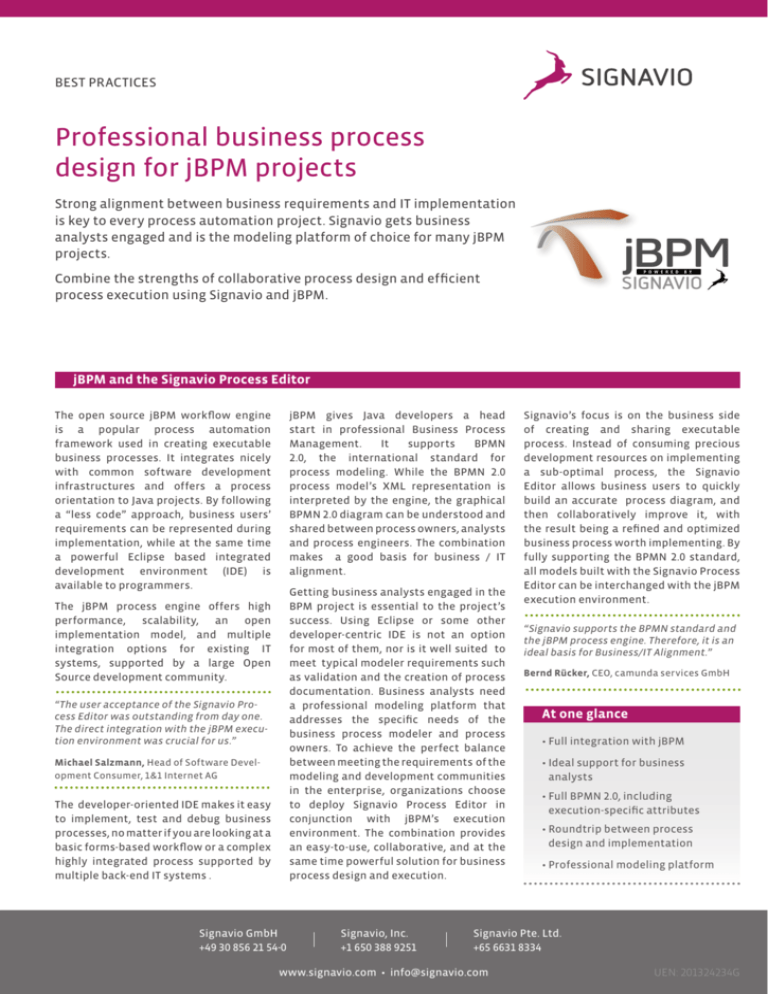
BEST PRACTICES Professional business process design for jBPM projects Strong alignment between business requirements and IT implementation is key to every process automation project. Signavio gets business analysts engaged and is the modeling platform of choice for many jBPM projects. Combine the strengths of collaborative process design and efficient process execution using Signavio and jBPM. jBPM and the Signavio Process Editor The open source jBPM workflow engine is a popular process automation framework used in creating executable business processes. It integrates nicely with common software development infrastructures and offers a process orientation to Java projects. By following a “less code” approach, business users’ requirements can be represented during implementation, while at the same time a powerful Eclipse based integrated development environment (IDE) is available to programmers. jBPM gives Java developers a head start in professional Business Process Management. It supports BPMN 2.0, the international standard for process modeling. While the BPMN 2.0 process model’s XML representation is interpreted by the engine, the graphical BPMN 2.0 diagram can be understood and shared between process owners, analysts and process engineers. The combination makes a good basis for business / IT alignment. Getting business analysts engaged in the BPM project is essential to the project’s success. Using Eclipse or some other developer-centric IDE is not an option for most of them, nor is it well suited to meet typical modeler requirements such as validation and the creation of process documentation. Business analysts need a professional modeling platform that addresses the specific needs of the business process modeler and process owners. To achieve the perfect balance between meeting the requirements of the modeling and development communities in the enterprise, organizations choose to deploy Signavio Process Editor in conjunction with jBPM’s execution environment. The combination provides an easy-to-use, collaborative, and at the same time powerful solution for business process design and execution. The jBPM process engine offers high performance, scalability, an open implementation model, and multiple integration options for existing IT systems, supported by a large Open Source development community. “The user acceptance of the Signavio Process Editor was outstanding from day one. The direct integration with the jBPM execution environment was crucial for us.” Michael Salzmann, Head of Software Development Consumer, 1&1 Internet AG The developer-oriented IDE makes it easy to implement, test and debug business processes, no matter if you are looking at a basic forms-based workflow or a complex highly integrated process supported by multiple back-end IT systems . Signavio GmbH +49 30 856 21 54-0 Signavio, Inc. +1 650 388 9251 Signavio’s focus is on the business side of creating and sharing executable process. Instead of consuming precious development resources on implementing a sub-optimal process, the Signavio Editor allows business users to quickly build an accurate process diagram, and then collaboratively improve it, with the result being a refined and optimized business process worth implementing. By fully supporting the BPMN 2.0 standard, all models built with the Signavio Process Editor can be interchanged with the jBPM execution environment. “Signavio supports the BPMN standard and the jBPM process engine. Therefore, it is an ideal basis for Business/IT Alignment.” Bernd Rücker, CEO, camunda services GmbH At one glance •Full integration with jBPM •Ideal support for business analysts •Full BPMN 2.0, including execution-specific attributes •Roundtrip between process design and implementation •Professional modeling platform Signavio Pte. Ltd. +65 6631 8334 www.signavio.com • info@signavio.com UEN: 201324234G
